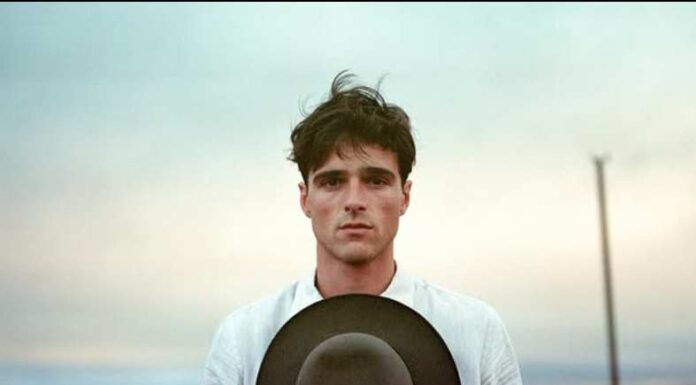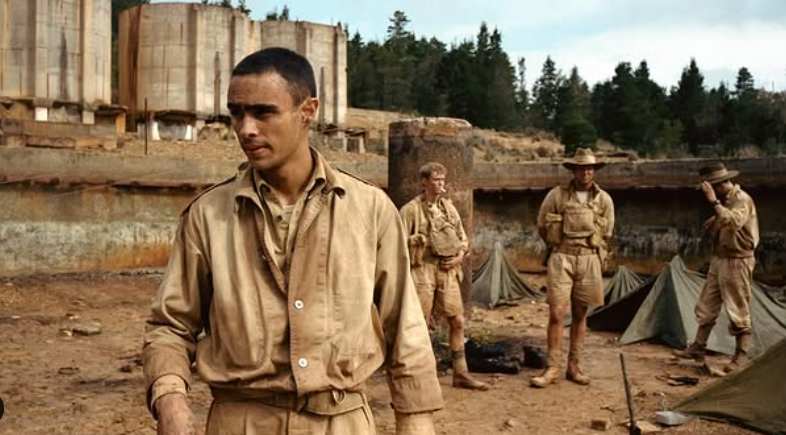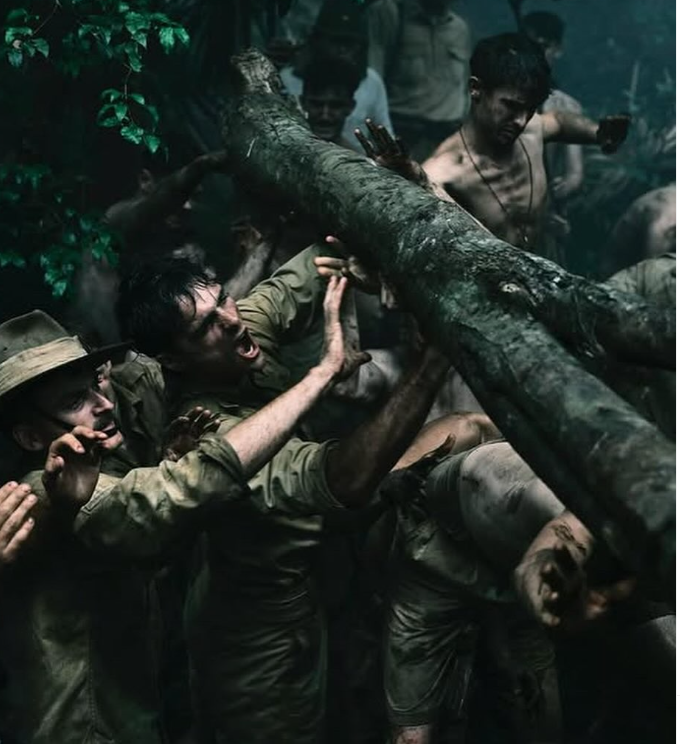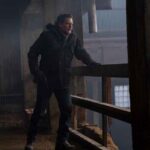The television adaptation of Richard Flanagan’s Booker Prize-winning novel THE NARROW ROAD TO THE DEEP NORTH is a landmark in Australian storytelling. Directed by acclaimed filmmaker Justin Kurzel and starring Jacob Elordi (Euphoria, Saltburn), this Prime Video limited series merges epic war drama with intimate emotional turmoil.
Set across decades, the five-part series follows Dorrigo Evans, played by Jacob Elordi, an Australian army surgeon who survives horrific conditions as a prisoner of war during the construction of the infamous Thai-Burma Railway in World War II. While enduring unimaginable cruelty, he clings to the memory of a brief but life-defining love affair with his uncle’s wife, Amy, portrayed by Odessa Young.
Dorrigo’s postwar life as a national hero and doctor contrasts deeply with his internal decay. Through fractured timelines, the narrative drifts between past and present—unraveling how memory, trauma, and unresolved love define a man’s legacy.
Filming locations are at the heart of the series’ visual storytelling. So, where were these poignant scenes captured? The locations, steeped in history and emotion, remain as enigmatic as the story itself, drawing viewers into a world where every frame whispers secrets of the past.
WHERE WAS THE NARROW ROAD TO THE DEEP NORTH FILMED?
Filming for The Narrow Road to the Deep North took place in 2023, wrapping production in March 2024, primarily across Sydney and other parts of New South Wales, Australia. While the story’s Thai-Burma Railway setting is central, the production recreated this historical site using a combination of natural landscapes and meticulously designed sets in New South Wales
View this post on Instagram
CALLAN PARK, LILYFIELD, SYDNEY, NEW SOUTH WALES
At the heart of the series is Callan Park, a former psychiatric hospital in Sydney’s Inner West suburb of Lilyfield. This location acts as a temporal chameleon, appearing throughout various timelines in the story. Its crumbling sandstone architecture and overgrown gardens embody themes of reflection, grief, and solitude.
In interviews ahead of the Prime Video release, Justin Kurzel emphasized the importance of place. He noted that Callan Park, in particular, was chosen for its “ghosts”—its visible history. According to him, the locations helped actors immerse deeply into their roles without artificial aids.
Kurzel explained, “Richard [Flanagan] always said the different moments of memory were key. So being in a place that already carried emotional memory was important.”
Kurzel explained that the location’s visual presence was vital. The history embedded within Callan Park mirrors the emotional burden carried by Dorrigo. Its weathered walls and echoing corridors become a canvas for the character’s past, portraying both the light of fleeting love and the heavy silence of remorse. This singular location became the emotional heartbeat of the series.
RURAL HOMES – NEW SOUTH WALES COUNTRYSIDE
Scenes of Dorrigo’s early life and pre-war innocence were filmed in modest rural homes surrounded by open fields. These homes, tucked into quiet corners of the New South Wales countryside, offer a symbolic contrast to the brutality of war. Their rustic simplicity helps to establish a tone of longing and nostalgia—emphasizing all that was lost.
Through these settings, the audience is grounded in the normalcy and beauty of what once was—a crucial foundation for understanding Dorrigo’s inner world. The open skies and pastoral calm allow brief moments of peace before the narrative descends into the horrors of captivity.
ABANDONED INDUSTRIAL SITES – REPRESENTING DECAY AND LOSS
To depict the psychological aftermath of war and the degradation of hope, the production turned to abandoned industrial sites around Sydney. These ruined structures, stripped of purpose and life, echo Dorrigo’s internal devastation and the disintegration of the men around him.
Often appearing in flashbacks or moments of introspection, these buildings function not just as scenery, but as emotional metaphors—sites of abandonment, survival, and the ghosts of the past.
FORESTS AND COASTLINES – NATURE’S REFLECTION OF INNER STRUGGLE
Lush forests and rugged coastal edges offered stark natural settings for scenes of emotional confrontation and reflection. The series used these wild Australian landscapes to externalize the characters’ inner turmoil.
Coastal cliffs and beaches, kissed by salt air, frame moments of vulnerability, their untamed beauty underscoring the characters’ inner struggles. These locations, likely drawn from Sydney’s surrounding national parks or coastal regions like the Royal National Park or the Central Coast, were chosen for their ability to evoke emotion without dialogue.
Whether it’s Dorrigo walking alone among towering trees or gazing out over a stormy sea, these locations carry mood and weight. They serve as natural spaces for remembrance and resilience, isolating the character within the enormity of nature.
Jacob Elordi, in returning to Australia for the project, said the familiarity of the land heightened his connection to Dorrigo. “There’s something about being home. You feel the soil, the air—it helped me understand Dorrigo in a way I couldn’t elsewhere.”
The use of authentic Australian settings, according to co-writer Shaun Grant, allowed the team to honor Flanagan’s book without overdramatization. “We wanted to let the places do the talking,” he shared. “Australia is so vast, but it’s also incredibly intimate. That’s what the story needed.”
FORGOTTEN BUILDINGS – PHYSICAL SPACES OF STALLED TIME
Scattered throughout the series are hauntingly beautiful, dilapidated buildings—once homes, shops, and schools—now caught in stillness. These forgotten spaces add a tactile layer to the narrative, embodying time’s pause and the characters’ emotional paralysis.
Their presence in the background or foreground of scenes subtly reinforces the idea that while time moves forward, the soul can remain trapped. This architectural stasis parallels Dorrigo’s own inability to fully escape his past.
THE DEATH RAILWAY – A SET BUILT IN NEW SOUTH WALES
One of the most emotionally intense aspects of the series is the depiction of the Thai-Burma Railway, also known as the Death Railway. Over 100,000 lives were lost during its construction by POWs under Japanese command during WWII. To faithfully capture the conditions, the series recreated this grim setting in New South Wales.
Through the use of natural terrain, dense bushland, and constructed camps, the production team painstakingly built a believable environment that reflects the suffering and courage of those imprisoned. The jungle-like atmosphere, combined with sweat, grime, and blood, is palpable. This was not simply about historical accuracy—it was about creating a lived experience for both the characters and the audience.
Kurzel and the team were careful not to sensationalize. The focus remained on personal resilience and the quiet bonds of brotherhood forged in horror. The recreated railway was a set, but it pulsed with truth.
THE NARROW ROAD TO THE DEEP NORTH is more than a war story—it is a deeply personal tale of memory, love, and the passage of time. And it is the filming locations—especially the profound silence of Callan Park and the brutal recreation of the Death Railway—that give this series its emotional gravity.
Through decaying walls, wide open fields, and thick coastal air, the places captured on screen echo with the weight of history. These are not just backdrops, but characters in themselves—watching, waiting, remembering.
For more insights, recaps, and behind-the-scenes stories from THE NARROW ROAD TO THE DEEP NORTH, come back soon to tvacute.com.
Is The Narrow Road to the Deep North Based on a True Story?
The Narrow Road to the Deep North: Is Dorrigo Evans Based on a Real Person?









